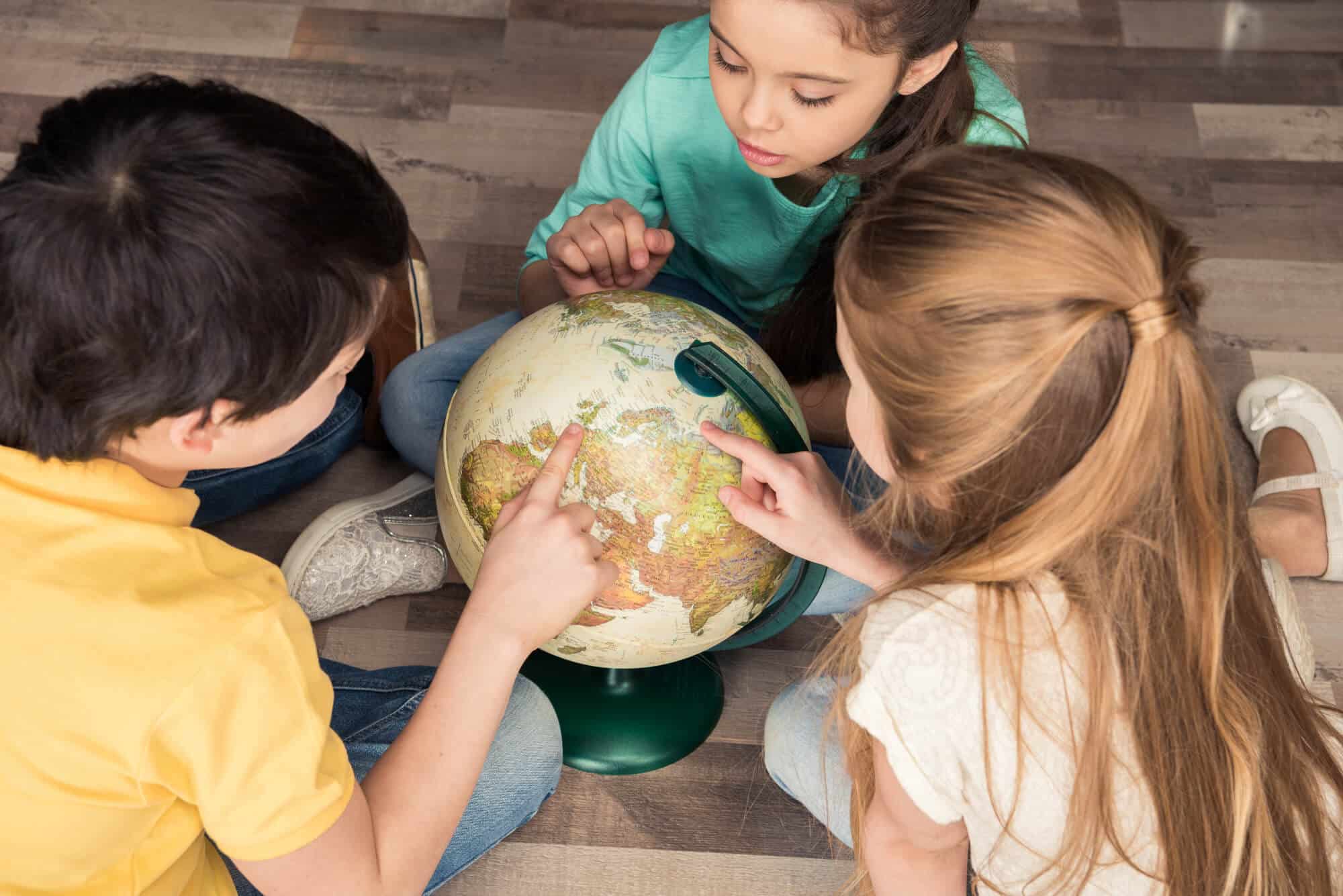Earth Day, which falls on April 22.4, is an opportunity to look at our planet as it is today - because very soon, it will look completely different. A glimpse of how our children's and grandchildren's globes will look in not-so-many years from now
Gideon Bacher, Angle - Science and Environment News Agency

When I turned five, Grandma Nona bought me a small globe for my birthday. From that moment, it became a global center. I would look at it every day for hours, memorizing the names of the continents illuminated by the electric lamp inside, learning about the location of oceans and great rivers, fascinated by the world. In retrospect, this gift may have created in my heart the intense desire to know the world, which in many days led to my joining the diplomatic staff of the Ministry of Foreign Affairs and my services as an ambassador.
Since I grew up and had children, I have been toying with the idea that the day I have grandchildren I will give them a globe as a gift. However, the globe they will receive from me will be completely different from the one I received from Grandma Nona: the shape of the continents will change due to rising sea levels, rivers that flowed will disappear, huge cities will be submerged in water, while small island nations will probably be erased from the blue expanses of the oceans. Few realize how deep and dramatic the impact of the climate crisis is on the geography and topography of our world.
The map changes colors
See for example the Global sea level rise, which is currently in an accelerating trend. By the end of this century, many coastal areas, coastal cities (some of them large), river mouths, deltas and low-lying areas are expected to be covered by the sea. Computer simulations are already showing us with considerable precision what will happen in the coming decades, and the picture being painted is of a dramatic change in the global coastline - and of entire areas of the globe that will be filled with blue. Beyond that, there are countries which may be deleted from the map - Exactly, like the policy of small and low-lying islands, whose areas are already visibly reduced from before.
In the northern regions there are processes of thawing of soil that was frozen until (Permafrost soil). Thus, in Canada, Alaska and Russia, the ground thaws and becomes muddy and swampy, and thousands of new lakes are created. This causes sinkholes to form in the thawing soil - which even leads to the release of disease-causing bacteria and viruses that were dormant in it, the stability of infrastructure such as roads, airports and railroads is compromised and entire areas become unfit for human habitation.
To prevent our globe from becoming historic
Even in the small spot on the globe that is Israel, changes are expected to occur. According to A recent report compiled by the Sea and Lake Research Institute (Khiel), the sea level will rise up to 1.2 meters by 2050, and up to 2.4 meters by the end of the century. This means a very serious damage to the Israeli coastal plain, large parts of which will be covered by the sea, and a considerable danger to the coastal cliffs.
The trend of drying out and reducing precipitation in Israel is expected to harm the water flowing in the streams, will accelerate the rate of the drop in the level of the Dead Sea - which is known to be shrinking across the map of Israel - and will cause the acceleration of desertification. Assuming that the forest fires will continue to rage and worsen, we will also witness a change in the vegetation cover in Israel.
Policy makers and planners must understand these changes, reduce them and prepare for them. And of course, the best way to preserve the planet and the landscapes of our childhood as we know them is by reducing our greenhouse gas emissions as quickly as possible, until they are fully offset in the middle of this century. This is so that in the not-too-distant future, school students will not receive atlases that are completely different from what we know today - and geography lessons will not have to include history chapters, which will describe a physical world that was and is no longer.
Ambassador Gideon Bacher is the special envoy for climate change and sustainability at the Ministry of Foreign Affairs.
